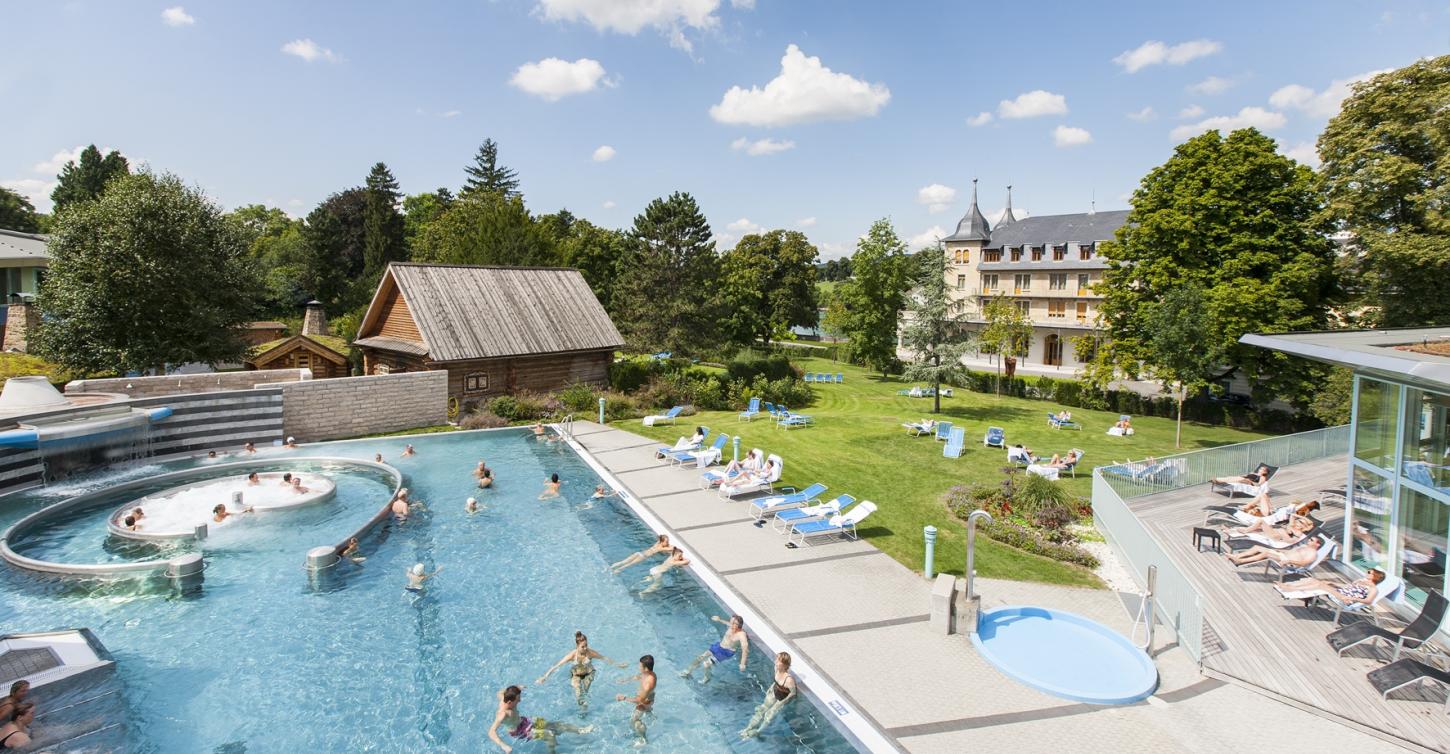
The history of salt
The history of salt dates back to 6,000 years before our era. However, it only became important in Rheinfelden in the middle of the 19th century when salt deposits were discovered and the first brine bath hotels were opened.
Salt as an offering, preservation & pharmacy.
6050 BC: The history of salt goes back a long way. In Egypt, salt was used as part of religious offerings and to preserve mummies.
2700 BC: The earliest known study of pharmacology from China mentions more than 40 types of salt and describes two methods of salt extraction similar to those used today.
500-1500: Records from the European Middle Ages document concessions for salt extraction. The production and transportation of salt led to the founding of new towns and the construction of roads.
1844: Discovery of salt deposits in Rheinfelden.

1846: The first Soolbadhotel Schützen opens.
The Hotel Schützen is the first brine bath hotel to open its doors. Today, the hotel no longer has its own brine bath, but the beautiful Art Nouveau hall and the lovely garden terrace have been preserved.

1847: The spa pioneer Heinrich Dressler lays the foundations for the later world-famous Grand Hôtel des Salines au Parc.
Today's Parkresort Rheinfelden is home to the Park-Hotel am Rhein with beautiful hotel rooms and various restaurants with views of the Rhine and the park, as well as the "sole uno" wellness world and the Saline Rehabilitation Clinic.

1864: First season of the "Armensolebad" for cures on favorable terms.
Not only well-heeled people should be able to go to the spa - that's why the first "Armensolebad" opens in the old town of Rheinfelden.
1896: Opening of the sanatorium.
As there was soon too little space, a large sanatorium was built outside the old town. It is the forerunner of today's Reha Rheinfelden.

1925: Construction of a direct brine pipeline to the Rheinfeld bathing hotels.
So that the brine no longer has to be laboriously transported, the Swiss Rhine salt works and the bathing hotels build direct pipelines to transport the brine to its destination. These still exist today.

1933: Opening of a drinking hall for drinking cures by Dr. Hermann Keller.
The balneologist Hermann Keller specialized in drinking cures. Even if the buildings look completely different today than they did back then, the name "Kurbrunnen" remains. It is still a meeting place for residents and guests today - as a concert or exhibition hall.
1939: Decline of classic spa tourism.
The beginning of the Second World War brings spa and bathing tourism to an almost complete standstill.

2005: Rheinfelden becomes an official wellness destination.
Rheinfelden is one of nine destinations to be awarded this label by the Swiss Tourism Federation. This illustrious circle also includes Leukerbad, Bad Zurzach, Scuol and Bad Ragaz.
The "Wellness Destination" label was discontinued at the end of 2023.

2018: SwissShrimp goes into operation.
Switzerland's first shrimp farm opens for breeding in Riburg near Rheinfelden. It uses waste heat and brine from the Swiss salt works in Riburg.




